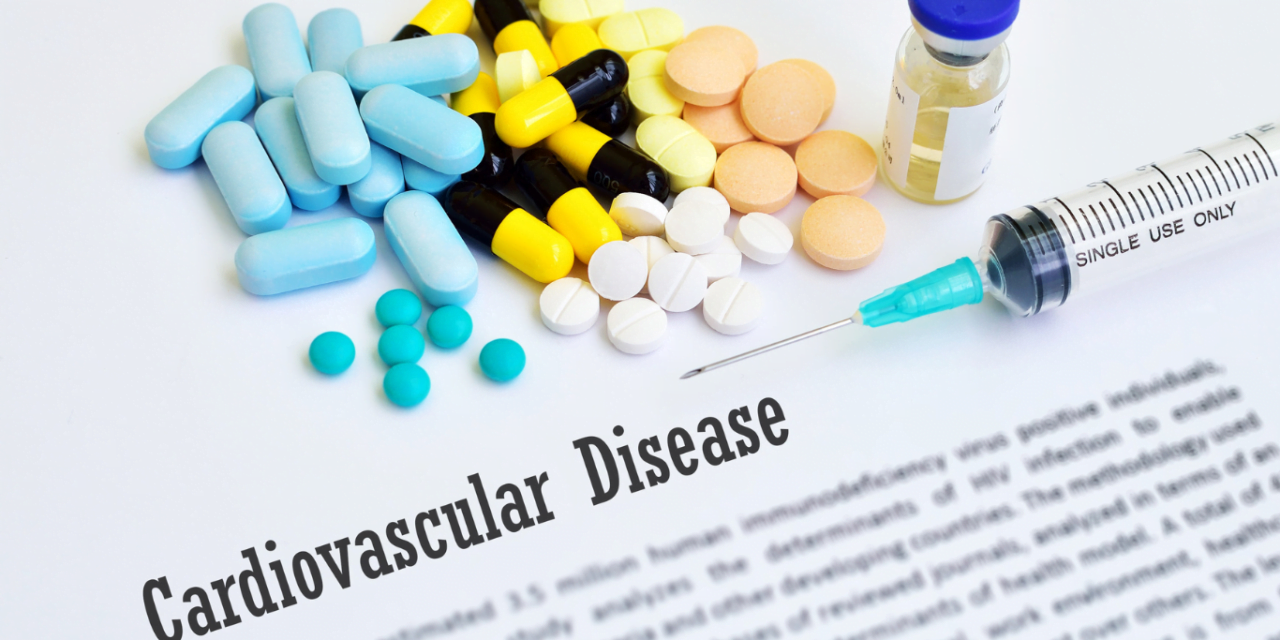Anabolic steroids are synthetic substances that mimic the effects of testosterone in the body. Athletes and bodybuilders commonly use them to enhance their performance and increase muscle mass. However, the use of anabolic steroids is not without its risks. One of the most severe risks is the potential for cardiovascular diseases. In this article, we will explore the relationship between anabolic steroids and cardiovascular diseases, including their effects on the heart and blood vessels and the evidence linking anabolic steroid use to hypertension, atherosclerosis, and myocardial infarction. We will also discuss strategies for prevention and treatment and the implications for anabolic steroid users and healthcare professionals.
What are Cardiovascular Diseases?
Cardiovascular diseases refer to a group of conditions that affect the heart and blood vessels. They are the leading cause of death globally, accounting for over 17 million deaths yearly. Cardiovascular diseases include coronary artery disease, heart failure, stroke, and hypertension. These conditions are caused by various factors, including high blood pressure, high cholesterol levels, smoking, obesity, and diabetes.
How Anabolic Steroids Affect the Cardiovascular System
Anabolic steroids work by increasing the production of testosterone in the body. This can lead to an increase in muscle mass and strength and a decrease in body fat. However, anabolic steroids can also have adverse effects on the cardiovascular system. They can cause an increase in blood pressure, a decrease in HDL cholesterol (the “good” cholesterol), and an increase in LDL cholesterol (the “bad” cholesterol). These effects can increase the risk of developing cardiovascular diseases.
Anabolic steroids can also cause the heart to enlarge, a condition known as left ventricular hypertrophy. This can lead to decreased cardiac function and an increased risk of heart failure. Anabolic steroids can also cause the blood vessels to constrict, which can increase the risk of atherosclerosis, a condition in which the arteries become narrowed and hardened due to plaque buildup.
The Impact of Anabolic Steroid Use on Cardiovascular Health in the UK
Anabolic steroid use has become a concerning issue in the United Kingdom, particularly due to its potential risks on cardiovascular health. As synthetic substances that mimic testosterone, these steroids are often used by athletes and bodybuilders to enhance performance and increase muscle mass. However, the UK population needs to be aware of the detrimental effects they can have on the cardiovascular system. This article explores the relationship between anabolic steroid use and cardiovascular diseases, focusing on the impact on the heart and blood vessels. It also examines the evidence linking anabolic steroid use to hypertension, atherosclerosis, and myocardial infarction, shedding light on prevention and treatment strategies for both anabolic steroid users and healthcare professionals in the UK.
Evidence Linking Anabolic Steroid Use and Cardiovascular Diseases
Several studies have investigated the relationship between anabolic steroid use and cardiovascular diseases. One study found that anabolic steroid users were more likely to have hypertension than non-users. Another study found that anabolic steroid users had a higher prevalence of atherosclerosis than non-users. A third study found that anabolic steroid use was associated with an increased risk of myocardial infarction.
Prevention and Treatment
The best way to prevent anabolic steroid-related cardiovascular diseases is to avoid using anabolic steroids altogether. If you are already using anabolic steroids, speaking with your healthcare provider about the potential risks and how to minimize them is essential. Reducing risks includes monitoring blood pressure and cholesterol levels, maintaining a healthy weight, and quitting smoking.
Treatment options for anabolic steroid-related cardiovascular diseases depend on the specific condition and severity. Sometimes, lifestyle changes such as diet and exercise may be enough to improve the situation. In more severe cases, medication or surgery may be necessary.
Conclusion
Anabolic steroids are a popular way to enhance athletic performance and increase muscle mass. However, their use comes with a risk of cardiovascular diseases, including hypertension, atherosclerosis, and myocardial infarction. Healthcare professionals and anabolic steroid users should be aware of the potential risks and take steps to minimize them. Future research should continue to explore the relationship between anabolic steroid use and cardiovascular diseases, as well as strategies for prevention and treatment.
FAQs
What are anabolic steroids?
Anabolic steroids are synthetic substances that mimic the effects of testosterone in the body. Athletes and bodybuilders commonly use them to enhance their performance and increase muscle mass.
Q. What are cardiovascular diseases?
Cardiovascular diseases refer to a group of conditions that affect the heart and blood vessels. They are the leading cause of death globally, accounting for over 17 million deaths yearly. Cardiovascular diseases include coronary artery disease, heart failure, stroke, and hypertension.
Q. How do anabolic steroids affect the cardiovascular system?
Anabolic steroids can cause an increase in blood pressure, a decrease in HDL cholesterol (the “good” cholesterol), and an increase in LDL cholesterol (the “bad” cholesterol). These effects can increase the risk of developing cardiovascular diseases. Anabolic steroids can also cause the heart to enlarge, a condition known as left ventricular hypertrophy, and the blood vessels to constrict, increasing the risk of atherosclerosis.
Q.Is there evidence linking anabolic steroid use to cardiovascular diseases?
Several studies have investigated the relationship between anabolic steroid use and cardiovascular diseases. One study found that anabolic steroid users were more likely to have hypertension than non-users. Another study found that anabolic steroid users had a higher prevalence of atherosclerosis than non-users. A third study found that anabolic steroid use was associated with an increased risk of myocardial infarction.
Q. How can I prevent anabolic steroid-related cardiovascular diseases?
The best way to prevent anabolic steroid-related cardiovascular diseases is to avoid using anabolic steroids altogether. If you are already using anabolic steroids, speaking with your healthcare provider about the potential risks and how to minimize them is essential. Reducing risks includes monitoring blood pressure and cholesterol levels, maintaining a healthy weight, and quitting smoking.
What are the treatment options for anabolic steroid-related cardiovascular diseases?
Treatment options for anabolic steroid-related cardiovascular diseases depend on the specific condition and severity. Sometimes, lifestyle changes such as diet and exercise may be enough to improve the situation. In more severe cases, medication or surgery may be necessary.
What are the implications for anabolic steroid users and healthcare professionals?
Anabolic steroid users and healthcare professionals should be aware of the potential risks associated with anabolic steroid use and take steps to minimize them. Anabolic steroid users should avoid using these substances altogether, while healthcare professionals should be prepared to guide and support those who have used or are considering using anabolic steroids.
Author

Dr. Aditya K. Sharma
I am Dr. Aditya Sharma, a dedicated urologist specializing in kidney transplants and advanced urological surgeries. My career is driven by a passion for delivering exceptional care and pioneering surgical techniques. Outside the operating room, I have a keen interest in studying the effects of anabolic steroids on bodybuilding, seeking to understand the fine line between enhancing performance and maintaining health.








